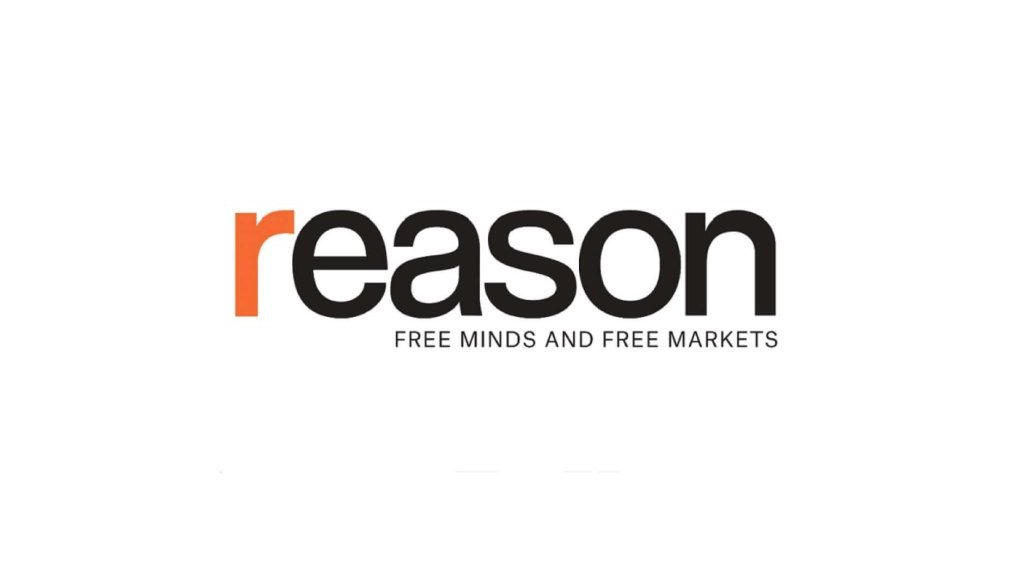Elon Musk Implausibly Claims ‘Competence and Caring’ Can Cut the Federal Budget Deficit in Half
Speaking to reporters for the first time since he took charge of the Trump administration’s cost-cutting initiative, Elon Musk yesterday portrayed the project as an effort to restore democracy by disempowering “a large unelected bureaucracy” that defies “the will of the people.” Musk, who delivered comments and took questions alongside President Donald Trump in the Oval Office, also presented the efforts of his so-called Department of Government Efficiency (DOGE) as both necessary and sufficient to address the nation’s looming fiscal crisis. As became clear when Musk got into the details of what DOGE is trying to do, both of those characterizations are highly misleading.
The main thrust of Musk’s efforts is applying sound business practices to federal expenditures, which is laudable and long overdue. But that has very little to do with confronting a “fourth, unconstitutional branch of government,” as Musk put it (although that spin may appeal to Trump, given his longstanding complaints about a “deep state” conspiracy against his agenda). And contrary to what Musk claimed, tackling “fraud and abuse” cannot possibly generate enough savings to eliminate the annual budget deficit, which was nearly $2 trillion in fiscal year 2024, let alone reduce the ever-climbing national debt, which currently exceeds $36 trillion, including $29 trillion in debt held by the public.
“We’ve got a $2 trillion deficit,” Musk said. “If we don’t do something about this deficit, the country’s going bankrupt….Interest payments alone on the national debt exceed the Defense Department budget, which is shocking [because] we spend a lot of money on defense. And if that just keeps going, we’re essentially gonna bankrupt the country….It’s not optional for us to reduce the federal expenses; it’s essential. It’s essential for America to remain solvent as a country. And it’s essential for America to have the resources necessary to provide things to its citizens and not simply be servicing vast amounts of debt.”
That assessment was sound and sobering. But as Musk delivered it, he was standing next to a president, seated at the Resolute desk, who added an estimated $8.4 trillion to the national debt during his first term and has proposed policies that could add another $7.8 trillion. Nor was that the only reason to doubt that the Trump administration can achieve the sort of spending cuts that will be necessary to address the challenge that Musk described.
Musk emphasized that DOGE is trying to correct sloppy payment practices that make it impossible to know whether taxpayer money is being properly spent. The Treasury Department, he said, lacks “basic controls” such as “making sure that any given payment has a payment categorization code” and that “there is a comment field that describes the payment.” He said departments (including the Pentagon, he noted) “can’t pass audits” because “the payments don’t have a categorization code” and “you can’t reconcile blank checks.” For “many payments,” he added, the comment field that is supposed to describe what the payment is for “also is left blank.”
Musk also repeatedly noted problems with the federal government’s “do not pay” list, which includes “dead people, terrorists, [and] known fraudsters.” He complained that it takes unreasonably long—”up to a year”—to update the list, and even then departments do not necessarily pay attention to it, which he said is “crazy” and “mind blowing.” He said his team had identified “thousands of transactions” in which individuals or organizations on the “do not pay” list were paid a
Article from Reason.com

The Reason Magazine website is a go-to destination for libertarians seeking cogent analysis, investigative reporting, and thought-provoking commentary. Championing the principles of individual freedom, limited government, and free markets, the site offers a diverse range of articles, videos, and podcasts that challenge conventional wisdom and advocate for libertarian solutions. Whether you’re interested in politics, culture, or technology, Reason provides a unique lens that prioritizes liberty and rational discourse. It’s an essential resource for those who value critical thinking and nuanced debate in the pursuit of a freer society.



